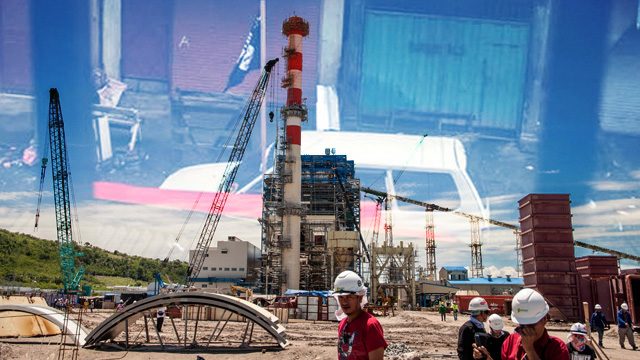SUMMARY
This is AI generated summarization, which may have errors. For context, always refer to the full article.

MANILA, Philippines – It was a normal working day for businesses in the Philippines on Wednesday, May 24, even as President Rodrigo Duterte declared martial law in the island of Mindanao on Tuesday night, May 23. But should the President extend or expand martial law, tourism and trade in the country may suffer.
Duterte had made the declaration following clashes between government forces and the Maute Group in downtown Marawi City, Lanao del Sur. He cited the threat of the Islamic State (ISIS), which the Maute Group previously pledged allegiance to, as basis for declaring martial law.
“I’m in Davao right now and everything is normal. There is no problem in the movement of goods and services,” Mindanao Business Council chairperson Vicente Lao said in a phone interview.
This was echoed by Sabin Aboitiz, executive vice president of Aboitiz Equity Ventures Incorporated, who said “so far, we are okay.” Aboitiz’s cement, power, and banking businesses have operations in Mindanao.
Senen Bacani, president and chairman of La Frutera Incorporated, said his Cavendish plantations in Buluan and Datu Paglas in Maguindanao are doing “just fine.”
La Frutera is the country’s largest banana exporter, whose exports are marketed and exported by Chiquita-Unifrutti and Ultrex.
“As far as our business is concerned, there is no impact. It is business as usual,” the head of La Frutera said in a phone interview.
Asked if his foreign investors inquired about the situation in Mindanao, Bacani replied: “No, they did not. They are used to these attacks. It’s even worse in Latin America.”
Bacani said he also doesn’t expect his workers to go on leave as they “will think more about the days’ worth they are going to lose.”
Even the country’s largest banking firm, BDO Unibank Incorporated, and nickel ore producer Global Ferronickel Holdings both said they are operating normally.
“It is business as usual,” Honey Reyes, BDO assistant vice president for public relations and external communications, said in a text message. BDO has 76 branches in Mindanao as of March 2017.
Global Ferronickel also told the Philippine Stock Exchange that the operations of its subsidiary Platinum Group Metals Corporation (PGMC) in Surigao del Norte is unaffected by martial law.
“Aware of the constitutional safeguards, business establishments are open and operating,” Global Ferronickel said in a disclosure.
“For its part, Global Ferronickel assures its stakeholders that the PGMC mine in Surigao del Norte continues to meet its commitments even as it joins the country in wishing for a peaceful and speedy resolution of the conflict gripping the area,” the company added.
Tourism, trade may suffer
But tourism and trade in the Philippines may be hurt if Duterte expands martial law beyond Mindanao and seeks an extension beyond the 60 days specified in the 1987 Philippine Constitution.
Duterte said on Wednesday that he might place the entire Philippines under martial law if the threat of ISIS persists.
“There will be effects on trade because movements are restricted. New investments will be affected and so will tourism,” Donald Dee, honorary chairman and chief operating officer of the Philippine Chamber of Commerce and Industry (PCCI), said in a mobile phone reply.
The Mindanao Business Council’s Lao said the same thing. He said: “If there is some effect, that will be in the international scheme of things. We know martial law has some negative connotations in the global arena. We might have some problems in the tourism sector.”
Over the last 6 years, Mindanao has been growing at an average gross regional domestic product of 7% to 7.5%, higher than the national average of 6.5%.
On investments, the region’s average annual investment inflows have grown tenfold. From P5 billion to P6 billion between 2001 and 2010, Mindanao jumped to P50 billion to P60 billion in annual investment inflows between 2011 and 2015, according to the Mindanao Development Authority.
“The government must do all to defeat these elements,” Dee said in a text message.
Section 18, Article VII of the 1987 Philippine Constitution says that the President, as commander-in-chief, may “in case of invasion or rebellion, when the public safety requires it” suspend the privilege of the writ of habeas corpus or place the country under martial law. The writ safeguards individual freedom against arbitrary state action. – Rappler.com
Add a comment
How does this make you feel?
There are no comments yet. Add your comment to start the conversation.